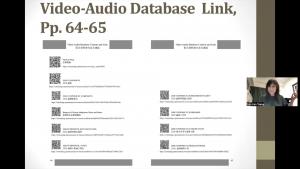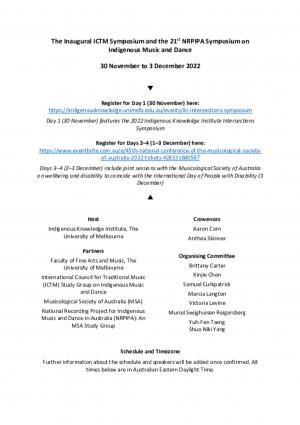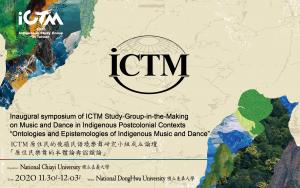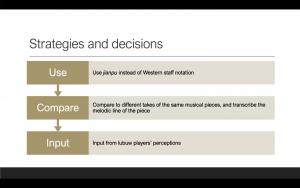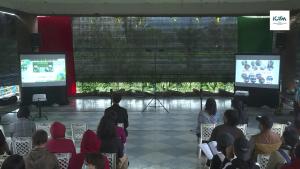Contesting and Reclaiming Indigeneity in Uyghur Music
|
典藏者
ICTM Study Group on Indigenous Music and Dance
Over the past nearly half a century, scholarly and media attention on the performing arts of China’s “minority” nationalities have been guided heavily by inquiries that prioritize issues of representation, cultural policy, and local adaptations—a framework that both critiques and is premised on the model of ethnic pluralism as promoted by the socialist state since the 1950s. Meanwhile, the escalating crises of cultural assimilation and political suppression as experienced by the minorities have invited conceptions of indigeneity as one that is shared across the ethnic lines, a transregional consciousness that resonates and aligns Chinese minorities with the wider global indigenous community. This paper focuses on the music and performing arts of the Uyghur—Central Asian Turkic Muslims whose ancestral homeland was incorporated into China as a minority “autonomous region” called “Xinjiang” in modern history. Here I examine musical indigeneity as a contested terrain in the writing of Uyghur history, where the official discourse has sought to historicize Uyghur music through a multiculturalist framework that highlights hybridity and impurity, one that contrasts starkly with the monolithic construction of Chinese civilization. Drawing on recent ethnographic findings and analyses on the local, folk interpretation of classical and contemporary genres, I also look at the ways in which articulations of cultural ownership, artistic integrity, and creativity in Uyghur performing arts have been informed by the burgeoning concepts of indigeneity among minority musicians and audiences on China’s ethnic peripheries.
在過去將近半世紀,學術界及媒體對中國少數民族的表演藝術的關注,主要是透過代表權、文化政策、當地適應性問題上—一個既批評又以1950年代後社會主義國家提倡的種族多元化為基礎的框架。同時,少數民族所經歷的文化同化和政治的打壓,招致了跨種族間少數民族的共鳴。此篇文獻著眼於維吾爾族的音樂及藝術表現形式——現代歷史中,最早以中國的邊疆地區為領土的中亞的突厥穆斯林民族。在這裡,我檢視了音樂本土性,作為維吾爾歷史中備受爭議的領土,官方試著給與維吾爾族音樂一個框架來表現其多元文化主義,使其在中華文化中形成格格不入的鮮明對比。在本文中,我除了著眼於最新的民族誌中,對於古典和當代樂種的本土式與民俗式詮釋的洞見與分析,也同時研究了維吾爾族表演藝術在受到中國少數民族音樂家新興的「本土性」概念與中國邊境民族觀眾的影響之下,其對文化所有權的發聲、藝術的整體性以及創造性。
